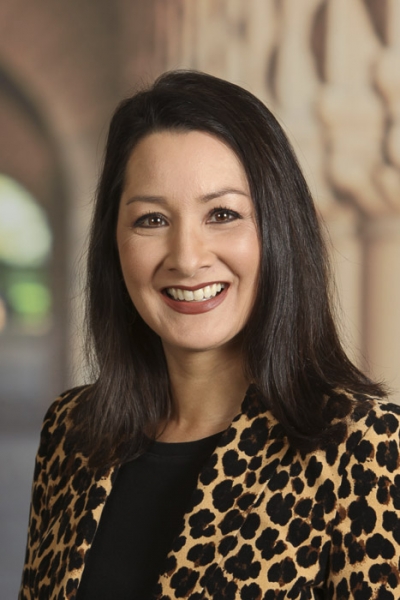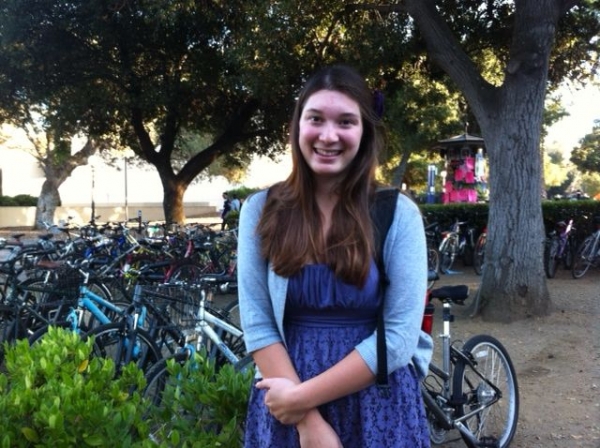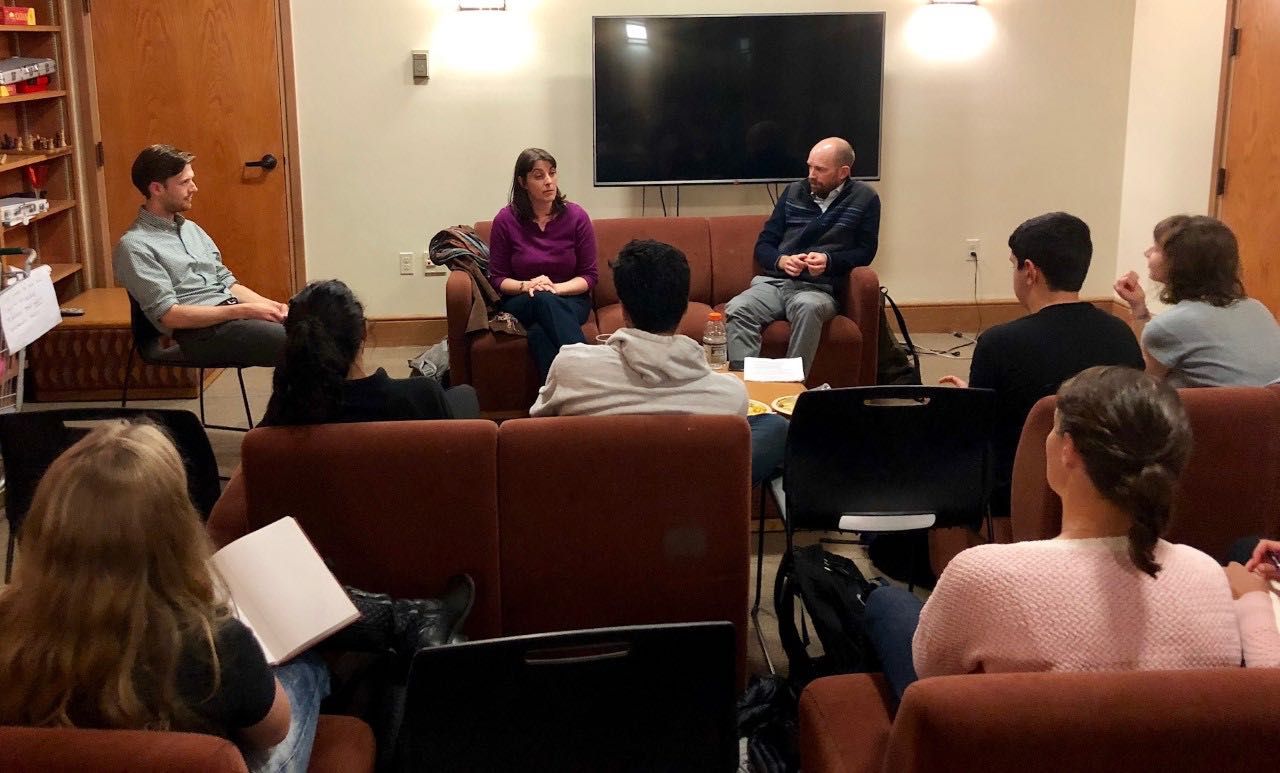Does high-school sex education reinforce female passivity? How can the language that coaches use with athletes be made more respectful? How useful is standardized test data across backgrounds, nations and continents?
Undergraduates in Stanford’s EAST (Education and Society Theme) House look at these and other questions through the lens of education as a means of changing the culture. Through lunchtime seminars, speaker events and informal talks, they find research and service opportunities and ways to connect their academics with the wider world – whether as teachers, educational technologists, policy makers, entrepreneurs or scholars.
“Stanford undergraduates are interested in education. They know firsthand how powerful it is as a force for change,” said resident fellow Christine Min Wotipka, an associate professor in the Graduate School of Education who came to EAST House in 2006 with her husband, GSE associate professor Anthony Lising Antonio.

“The challenge is finding where to fit,” said Kojo Osei, ’18, a former resident assistant in the house. “There are a lot of ways to be involved in education. EAST House is a great way to contextualize that.”
Residents attend weekly one-unit lunchtime seminars for at least two quarters of the academic year. (Lunch is included, saving students a meal swipe.) The seminars are open to all undergraduates, as are career panels and events like talks with Michael Kirst, a GSE professor and current president of the California Board of Education.
In fall quarter, the seminar looks with broad lines at educational issues. This past winter, participants were introduced to each of the Graduate School of Education’s 10 research centers. Students do group reflections on such topics as finances, inequality and access, then present their work at quarter’s end.
“A group of Stanford baseball players was taking it – they lived nearby and it was easy for them to walk over here,” Wotipka said. They were concerned about the language, which they described as sexist and female-degrading, used by coaches to critique players.
“They role-played what the same conversations would sound like after the coaches had had training, and gave feedback with more positive correction. It was great.”
Though students don’t have to live in EAST House to attend its programs, many do for its culture of volunteerism and public service, Wotipka said.
“We have many Haas Center participants and others who feel passionate about service. They want to be in a residential community where they can work and talk together on these issues,” she said.
The house launched as an East Asian theme house: Wotipka, a sociologist, has done work in South Korea. Antonio and Wotipka launched the education theme in 2010, keeping the old acronym but better reflecting student interest, Wotipka said.
While the GSE confers only graduate degrees, a full 20 percent of its course enrollment is undergraduate, and it offers an undergraduate minor and honors program in response to student demand. The GSE’s emerging UP@GSE initiative explores further ways to broaden and deepen undergraduates’ knowledge of education research, policy and practice.
One outcome of EAST House seminars has been Stanford’s pre-education student society, SPREES, founded in 2012 by Julia Quintero, ’15, with classmates who presented it as an end-of-quarter seminar project. Quintero, now a master’s student in the GSE’s Stanford Teacher Education Program (STEP), said SPREES aims to increase campus advising for future teachers and to help entice the best students into the profession.
“I entered Stanford knowing I wanted to teach, and I might have set a record for the number of times I took the EAST House seminar as an undergrad,” Quintero said. “Bicycling to the house one day, I was thinking about the low status teachers have in this society, how hard it was to meet others who felt as I did and what could be done about it.
“I was in the Human Bio core, which is mostly pre-meds, and everything was pre-med this and pre-med that and I thought, ‘Why not pre-ed?’” Quintero told the Palo Alto Weekly in 2013.

Chris Kenrick/Palo Alto Weekly
Other EAST House participants are passionate about education, but think their niche may be outside the classroom.
“My dad was a math teacher,” said Osei, a senior in math and computer science. “Being surrounded by educationists, you realize it’s not an either/or situation to stay involved in education without sacrificing a career in something else.
“Before Stanford, I took a gap year in an educational nonprofit working with kids with learning disabilities. The EAST House seminars really put my previous experience into context.
“Last year, Professor Amado Padilla talked about Buena Vista Mobile Home Park [a Palo Alto community of working-class, mostly Spanish-speaking homes], and what the students in these places are able to achieve. ... That was an introduction to practical interventions that can help people succeed.
“It’s right here. It’s something you can relate to."
Osei is pursuing a co-terminal master’s in biomedical informatics in the School of Medicine.
“I’m a technologist,” he said. “I want to know how can tech augment experience, but also how tech has been hyped up and has failed. The seminars really help to question how we do a lot of things in ed tech, how to get to the human component in education.”

-- Barbara Wilcox
